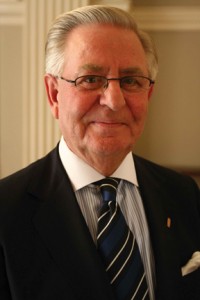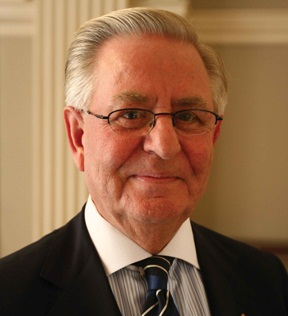
By: Philip Whitfield
How do you feed your prejudice? Choosing what bits to read? Or who to hang out with? It’s an infectious disease. One minute you’re as tolerant as can be, the next you’re ranting about someone’s views.
We are all united in a crisis, says Nancy Taylor, pastor of the Old South Church of Boston near the marathon finishing line, describing some of the innumerable acts of heroism after the terrorists struck. People ran towards the blasts to help, she says. We are all one when we’re threatened.
Would that Cairo was as well. The Revolution has changed the way people react. They’ve a new perspective on the Arab Spring now.
One way of looking at things is to consider the Awakening as an eruption, a seismic shift in the Islamic world that triggered an earthquake felt from the extremities of North Africa across the Middle East to Turkey and the Gulf.
After the tsunami: the aftershocks. It’s fair to say at first the response was rage. Each was seen, rightly, as an assault on their culture and provoked intense indignation.
Two years on, however, there’s a subtle change. The communities have solidified, drawing in on themselves, less likely to bother to converse with people that don’t share their views.
They are reassured by their own folk that theirs is the right course.
When I was talking about this in a group recently, I thought I’d stir things up a bit by describing the phenomenon as the Jewish Family Syndrome. We all know how the Jewish mother of the family spends Friday afternoon in the time-honoured tradition preparing for the Sabbath. Over their Shabbat meal they share the week’s goings on.
So it is in Egypt, I said. Families have become closer in these uncertain times. They’re less likely to go out at night to socialise, more likely to share with those they most trust. Egypt has become a Jewish Family, I declared.
The most senior woman present beamed a broad approving smile. I like that, she said. I like the idea of being a Jewish Family. It describes the way we’ve become.
Yet she recognised the pitfall: intolerance, the bane of the self-righteous.
Egypt, she said, had distinguished itself among the Arab countries by offering the hand of friendship to all. True there had been pogroms in the past, as there had been across Europe.
She could remember a time when you could find an apartment building shared by Copts and Muslims. Not any more, she said. Neither could she remember the last time she had poured a cup of tea for an Egyptian Christian.
She’d just had a life-changing experience visiting a grown-up granddaughter and her family in the United States. It was her first visit. What struck you most, I asked, expecting to hear about the skyscrapers, the smooth highways and the abundance of food.
Americans, she declared. They are wonderful. Everywhere I went they wanted to make me feel welcome. Nothing was too much trouble for them.
It was such a joy going to the school where my great granddaughter was enrolled. To see her mixing in with people from a rainbow of backgrounds was more than heart warming, she continued.
To think she’s coming home to a divided, sectarian country where we take offence at the smallest sideways glance, she said.
I’m coming to believe the eruption in society is as damaging in the longer-term as the conflict in Ireland that has bedevilled society from one generation to another and still casts a long shadow.
Parts of Belfast are segregated by high walls and barbed wire fences to prevent neighbours from attacking each other. When I watched them being constructed in the 1960s I imagined they’d be up for a few months until the police restored order.
Today some of those barriers are being raised even higher.
Intolerance was at the heart of the conflict between the Arab world and Christianity, searching for answers to scientific inquiry in the 17th century Enlightenment. Europe embarked on a journey guided by critical reasoning. Islam put its faith in the Koran.
After that? The division widened until the fall of the Ottoman Empire a hundred years ago. After World War I, the Europeans drew lines over Arabia and decided who would govern them.
The disaster that followed partition of Palestine and Israel’s illegal occupation of the West Bank in 1967 only served to drive division in the minds of people occupying the Middle East.
The despair of youth and the shoals of unemployed and underemployed are the core of today’s aftershocks. There will never be peace; people will never join hands until the hopes of these young people are fulfilled.
The headlines are a damning conviction of the criminality of the leadership and the opposition. One by one, dissolute figures troop onto the Tahrir stage proclaiming their rights, exposing their avarice, their lust to impose their will, so sure of themselves, so hollow under historical scrutiny.
A remarkable joining together occurred this week. Britain celebrated the life of one of the most divisive figures in its recent history. Margaret Thatcher, the country’s longest serving prime minister in 150 years was buried in majestic style.
Her policies divided the UK. Yet admirers and critics, in the main, put bitterness aside to grant Baroness Thatcher the respect she deserved. Even the most appalled registered their reproof with propriety.
Across the cover of the order of service for the funeral were two words, a motto of hers: Cherish freedom, words she stressed when we met for what turned out to be the last time.
How apt.
When foes unite around the essence of democracy life is tolerable. Misery attends when democracy is misconstrued to steal power.
Philip Whitfield is a Cairo commentator



